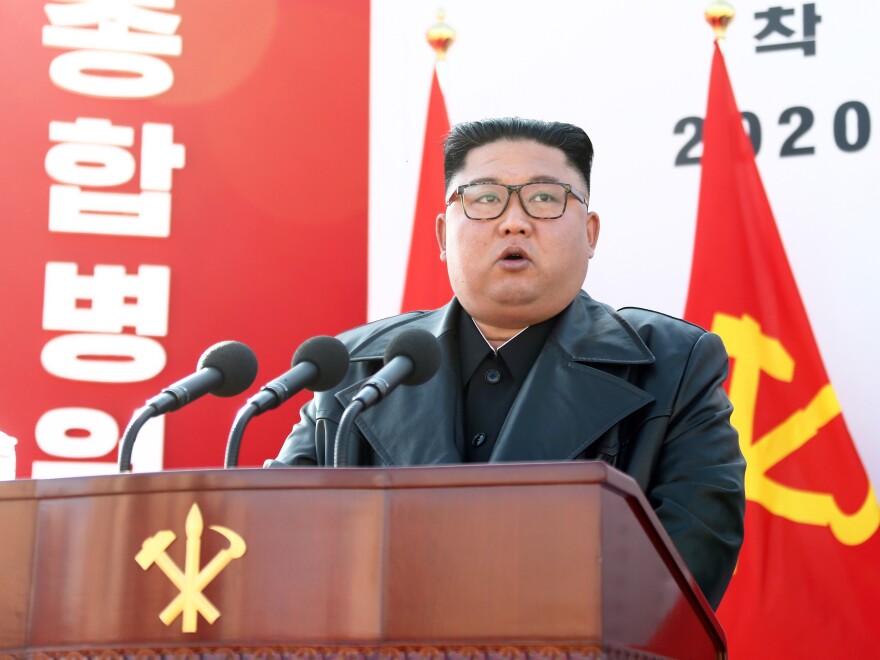North Korean leader Kim Jong Un staked out a hardline position just days ahead of President-elect Joe Biden taking office, calling the United States his country's "biggest enemy," and vowing to advance his country's nuclear arsenal.
"Our external political activities must focus on controlling and subjugating the United States, our archenemy and the biggest stumbling block to the development of our revolution," Kim said, according to the official Korean Central News Agency (KCNA).
"No matter who takes power in the United States, its true nature and its policy toward our country will never change," he added.
Kim made the remarks Friday at the ruling Workers Party 8th congress in Pyongyang. Analysts have been parsing reports of the congress for signs of new policies, and this is the first indication of Kim's position towards a new U.S. administration.
President-elect Joe Biden has promised "principled diplomacy" with North Korea, implying a break with President Donald Trump's high-stakes summits with Kim Jong Un. He has also indicated he will work more closely with U.S. allies South Korea and Japan.
At the congress, Kim called for the improvement of the country's nuclear arsenal to include solid-fuel intercontinental ballistic missiles that can be launched from land and sea, and accurately hit targets at a range of up to 9,320 miles, putting the U.S. mainland in reach.
He also ordered the development of miniaturized nuclear weapons, tactical nukes, military surveillance satellites and hypersonic aircraft.
Kim reaffirmed that North Korea would not use its nuclear arsenal in a preemptive strike.
Following the collapse of his second summit with Trump in Vietnam in February 2019, Kim appeared to give up hope of reaching a denuclearization deal with the U.S., and resolved to continue building up nuclear and conventional weapons while diplomacy remained stalemated.
Last year, Kim pledged to unveil a new strategic weapon, and in October, North Korea revealed what appeared to be a new and upgraded intercontinental ballistic missile, bigger than one already thought to be capable of hitting the continental U.S.
While Kim has said he no longer feels bound by his self-imposed moratorium on testing strategic weapons, including nuclear devices and intercontinental ballistic missiles, Pyongyang has not tested either since the last intercontinental ballistic missile launch in 2017. The tests triggered stringent U.N. sanctions.
North Korea did continue last year, though, to test shorter range ballistic missiles capable of hitting targets in South Korea, including bases where the U.S. has some 28,500 troops. President Trump appeared unperturbed by the tests, as they were not capable of hitting the U.S. mainland.
Kim began the party conference this week, the last since 2016, by bluntly admitting that his last five-year economic plan had ended in failure, due to both external factors — such as international sanctions and the coronavirus — but also due to internal reasons, such as government mismanagement of the economy.
The KCNA report said the congress blamed officials for botching implementation of the party's economic plans and "failing to actively introduce reality-friendly and people-friendly methods" in the ruling party's work.
The report also touted Kim's summitry with Trump as a diplomatic achievement.
Over the past five years, it claimed, the ruling party's work effected "a dramatic change in the balance of power" between Pyongyang and Washington, "demonstrating the dignity and prestige of our state."
Copyright 2021 NPR. To see more, visit https://www.npr.org. 9(MDEwMTk5OTQ0MDEzNDkxMDYyMDQ2MjdiMw004))



